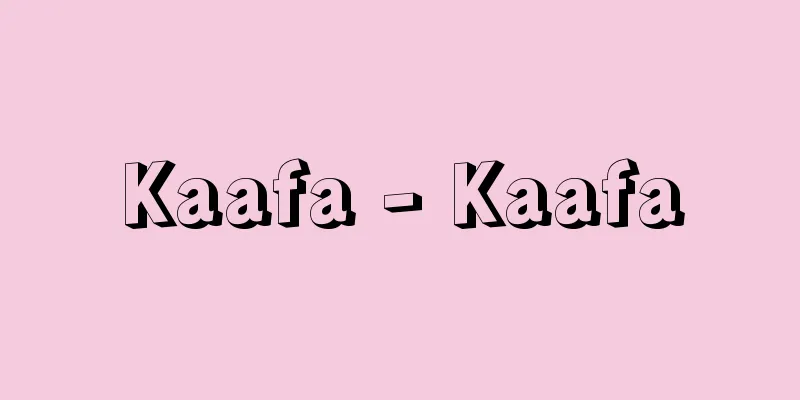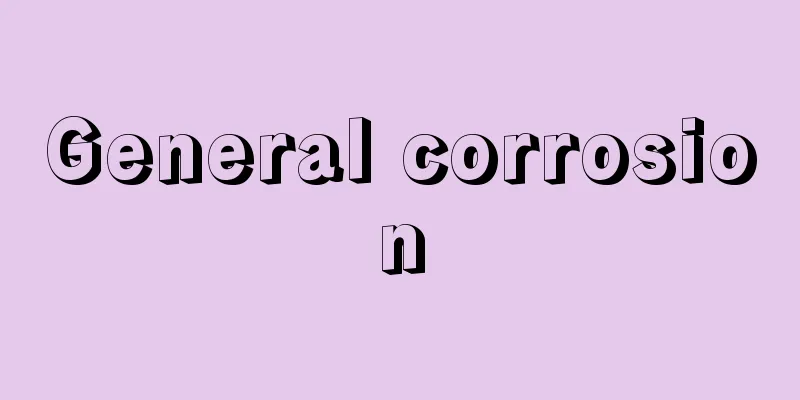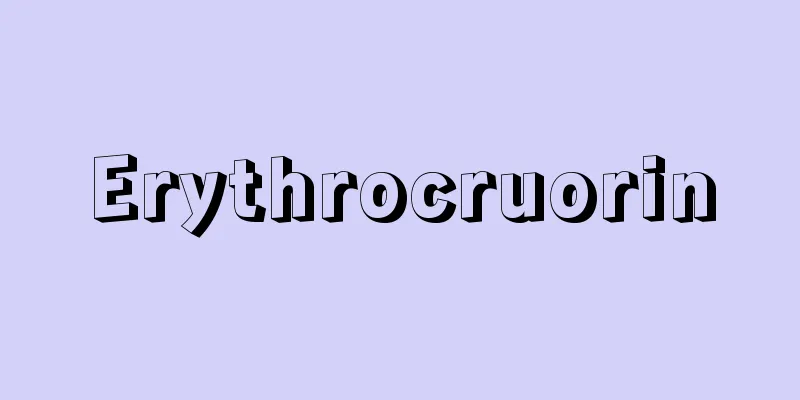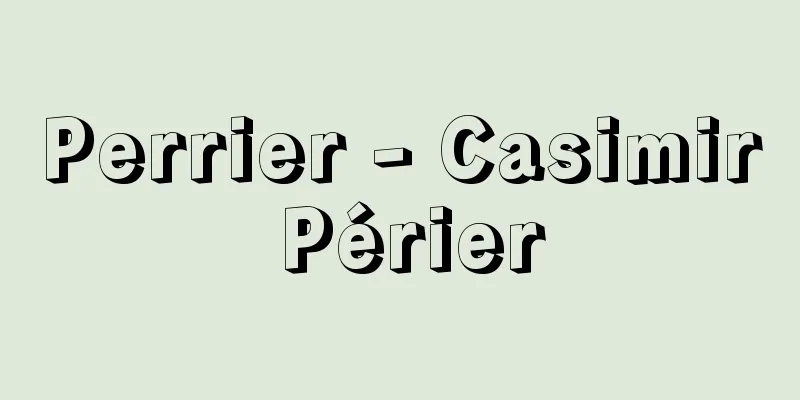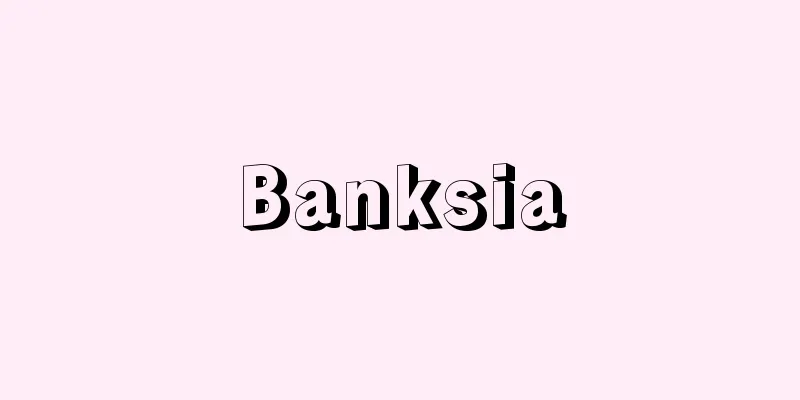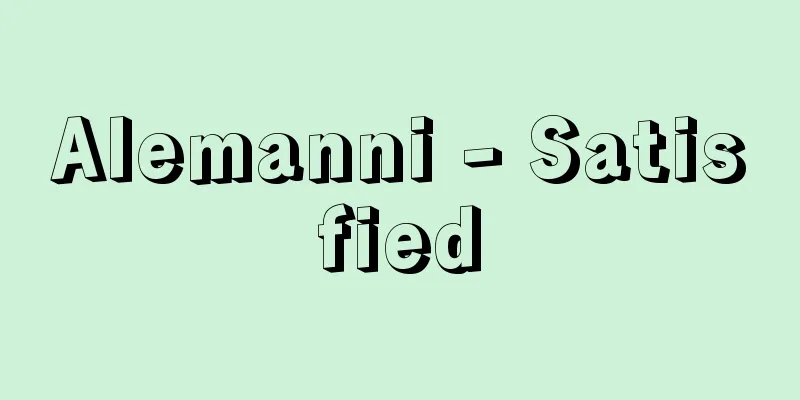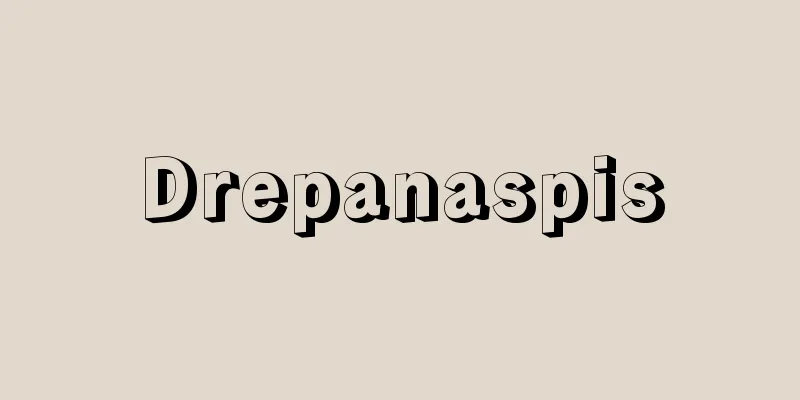Conceptual words - Kannengo
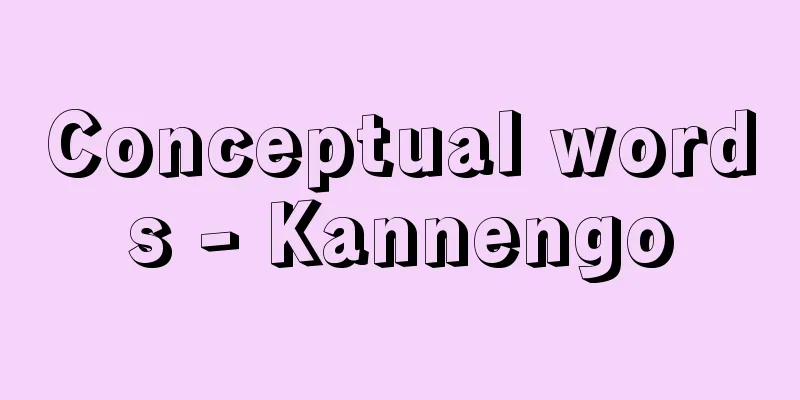
|
〘noun〙① A word whose content is some kind of idea. The opposite of a formal word. An idea is almost like a concept, roughly equivalent to a semantic element for a morpheme, or an independent word for an auxiliary word. [Japanese Grammar Theory (1902-08)]② A conceptual word without substance. ※Family Happiness (1948) by Dazai Osamu "A truly childish conceptual word (for example, in my research, although it is true, somehow we should rebuild Japan, both the government and the people should join forces, etc.)" Source: The Selected Edition of the Japanese Language Dictionary About the Selected Edition of the Japanese Language Dictionary Information |
|
〘名〙① 何らかの観念を内容とする語。形式語の対。一つの観念は概念というに近く、形態素に対する意義素、付属語に対する自立語にほぼあたる。〔日本文法論(1902‐08)〕② 実質の伴わない、観念的な言葉。※家庭の幸福(1948)〈太宰治〉「実に幼稚な観念語(たとへば、研究中、ごもっともながらそこを何とか、日本再建、官も民も力を合せ〈略〉云々)」
出典 精選版 日本国語大辞典精選版 日本国語大辞典について 情報 |
>>: Conceptual form - Kannen mobile phone
Recommend
Taishikcho - Taishikcho
[Also called taijikicho] One of the six keys of ga...
Iwan (English spelling)
In Islamic architecture, this refers to an open-fr...
Armistice Agreement - Armistice Agreement
...However, for individual violations, only punis...
Mount Uenshiri - Mount Uenshiri
...A small amount of farmland opens up on the nar...
Sea daisy - Sea daisy
A perennial plant of the Asteraceae family (APG c...
Tricyrtis macranthopsis (English spelling)
…[Hiroshi Takahashi]. … *Some of the terminology ...
Exobasidium
…A disease of plant leaves caused by the parasiti...
Campeche Bay Oil Field - Campeche Bay Oil Field
…In 1957, an oil field was discovered in the vici...
"Kinponchikushokinen" - "Kinponchikushokinen"
…It contains legends that do not appear in tradit...
Rozenfel'd, LB (English notation)RozenfeldLB
…Soviet revolutionary and politician. His real na...
baryton
…A musical term derived from the Greek word baryt...
Uryu Swamp High Moor Zone - Uryu Swamp High Moor Zone
...The area was opened up in 1891 with the establ...
Net collar - Amieri
…These developed into larger and more complex str...
Cuuuuuuuuuuuuuuuuuuuu
...Some consonants change their shape when combin...
Pisonia alba (English spelling)
…[Kazuo Furusato]. … *Some of the terminology tha...

